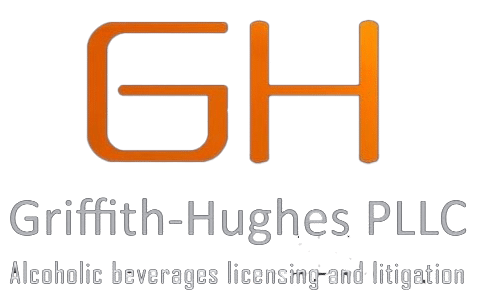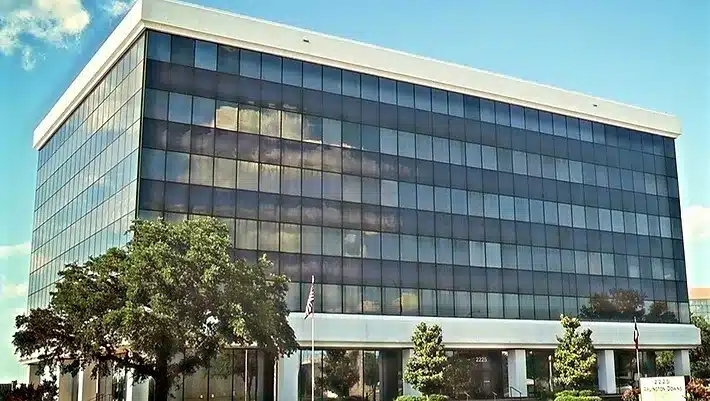
Over the years, our clients have repeatedly expressed frustration with the Commission’s delays in getting routine business taken care of. This includes unreasonable delays in processing new applications, unreasonable delays in getting hearing dates set with the State Office of Administrative Hearings on contested matters (such as licensing decisions or code violations), and unreasonable delays in getting agency orders after a Proposal for Decision (“PFD”) from the State Office of Administrative Hearings (“SOAH”). Our anecdotal experience is consistent with the public records from the Commission and SOAH (see below). Unfortunately, excessive delays not only continue, but are allowed to persist without consequence.
Examples
Case 1
Tex. Alco. Bev. Comm’n v. Billar El Tapatio, No. 458-21-2198 (SOAH –Austin [ALJ Moore] Jul. 19, 2021). Applicant applied for a new permit (also known as an original application) over two and a half years ago and is still without one.
The Applicant applied for a new permit in February of 2020. The Commission recommended denial of the permit and requested a hearing on May 14, 2021. A hearing on the merits was held on July 1, 2021. The Administrative Law Judge (“ALJ”) issued a PFD recommending that the permit be granted. In his decision, the ALJ dismissed the Commission’s evidence as “speculative”, “provid[ing] little basis”, and “scant”, and described the delays in processing the application as “appear[ing] excessive”, and further stated that he “lack[ed] authority to consider or rule on constitutional challenges to the sufficiency of the TABC rules or the length of time to complete the hearing process”. The Agency Order granting the permit was issued on September 27, 2022, almost 14 months after the ALJ issued his PFD. This order does not become enforceable until October 25, 2022 due to procedural requirements of the Texas Administrative Procedures Act, meaning the Applicant does not have their permit until the aforementioned date (assuming that the legal division does not file a motion for rehearing).
Case 2
Tex. Alco. Bev. Comm’n v. Celebrino Events Center LLC, No. 458-22-2419 (SOAH –Austin [ALJ Lutostanski] Jul. 14, 2022). Applicant applied for a new permit over a year and three months ago, if not longer, and is still without one.
Original Application appears to have been filed sometime in 2021 (exact date is unavailable through publicly available records). Protest against the application was filed July 2, 2021. The Commission found reasonable grounds for the protest, and requested a hearing on April 13, 2022, which was 9 months and 11 days after the protest. Hearing was held May 18, 2022. In his PFD, the ALJ stated that there was “insufficient evidence to deny the application for a permit”, and that some of the allegations were “too speculative”. Agency Order was issued on September 27, 2022. Like Billar El Tapatio, this Applicant does not have a permit until October 25, 2022 (assuming protestants do not file a motion for rehearing).
Case 3
Tex. Alco. Bev. Comm’n v. The Roundup Beer Garden and Food Park, No. 458-23-02417 (SOAH –Austin [ALJ Gamble] Case Pending). Applicant applied for a new permit over a year and a half ago, if not longer, and is still waiting for a hearing.
Applicant filed for a new permit sometime in 2021 (exact date is unavailable through publicly available records). Initial protests were filed on May 20, 2021. The Commission found reasonable grounds for the protest and requested a hearing on October 6, 2022, which was 1 year and 4 months after the protest was filed. A hearing on the merits is not scheduled until November 18, 2022.
Underlying Cause for Delays
Unreasonable delays such as those cited above are allowed to happen because neither the Texas Alcoholic Beverage Code, nor the Commission’s existing Rules provide any deadlines which hold the Commission accountable. Contrast this with cases filed in civil and criminal courts, which are subject to statutes of limitations (deadline to file a case), and timely hearing requirements (deadline to hold a hearing).
Potential Prejudice Caused by Delays
Unreasonable delays can harm new entrants, affect public safety, and deprive due process of new entrants and existing license and permit holders.
A new entrant may be on the hook for rent and other business associated expenses while their application is being considered. Unreasonable delays can result in financial ruin.
Bad operators that are not swiftly prosecuted endangers public safety, and undermines deterrence. This goes against the Commission’s principal duty of protecting the public through timely enforcement of the Code. See, Tex. Alco. Bev. Code § 5.31.
Unreasonable delays also prejudices defense of business. According to one statistic quoted by ToastTab, a point of sale service provider, the churn rate was 86.3% for 2021. Even a few month delay from the time of citation to the time of hearing could result in loss of material witnesses. This is on top of other incidental issues associated with delay such as loss or memory and records due to passage of time.
Worse, some employees of the Commission actively exploit these self-created delays to pressure small business to settle, knowing that it is cheaper to settle for a few thousand dollars, than the cost of putting on a full-fledged defense.
Businesses don’t realize that some investigations conducted by the Commission are one-sided, which are based solely on the word or unsubstantiated opinion of an agent, and lack independent corroboration associated with a proper investigation, such as written witness statements, audio and video records, etc. Furthermore, in the case of undercover operations, undercover agents are allowed to consume alcohol at the business, while gathering important facts, and write their reports from memory several days to several weeks after the case (even though they have been drinking). While efforts can be made to undermine a case with these set of circumstances by pointing out shortcomings and credibility issues, having live witnesses with first hand knowledge is more effective. Unfortunately, the longer a case lingers, the harder it is to find a cooperative witness who has sufficient recollection.
Contested Case Crisis: No System in Place for Timely Disposition
of Contested Matters; Backlogs Continue to Swell Unabated
Even contested disciplinary cases are not being timely prosecuted. During the 2022 fiscal year, which began on September 1, 2021, and ended August 31, 2022, the Commission only filed six Tex. Alco. Bev. Code § 11.61 cancellation/suspension actions in SOAH (mediations, emergency orders of suspension, and licensing matters are excluded). They include Tex. Alco Bev. Comm’n v. Buffalo Too, No. 458-22-0058 (SOAH – Austin [ALJ Johnson] Nov. 18, 2021, Dismissed Pursuant to Mediated Settlement Agreement) and Tex. Alco Bev. Comm’n v. Reyna’s Club, No. 458-22-2268 (SOAH – Houston [Sauceda] Case Pending), and common allegation against the same c-suite executive who operated four locations, see Tex. Alco Bev. Comm’n v. The Coliseum, No. 458-22-02850 (SOAH – Austin [ALJ Lutostanski] Case Pending), Tex. Alco Bev. Comm’n v. OK Corral, No. 458-22-02851 (SOAH – ALJ Lutostanski] Case Pending), Tex. Alco Bev. Comm’n v. Far West, No. 458-22-03370 (SOAH – Austin [ALJ Lutostanski] Oct. 10, 2020, Dismissed by Agreement of Parties), Tex. Alco Bev. Comm’n v. Arena Theater, No. 458-22-02853 (SOAH – Austin [ALJ Lutostanski] Oct. 10, 2020, Dismissed by Agreement of Parties)
At the rate of six cases a year, the Commission is unlikely to make any meaningful progress to address its existing backlog, as it continues to build from the influx of new cases. Based on our review of the Commission’s own records for the Fiscal Years of 2020 – 2022 (September 1, 2019 through August 31, 2022, there were 408 cases. It would take 68 years just to resolve those cases.
Imposing statute of limitations and timely hearing standards are vital to keeping the system moving, based on my personal experience working as a criminal prosecutor in a high-volume environment in rural county in Washington State. I averaged about 13 trials a year. My misdemeanor caseload was about 1500 cases a year (not including traffic infractions). I eventually moved onto prosecuting felonies where my caseload dropped to 150 cases a year, however, the stakes were higher and the tolerance for error was much lower. High volume of cases in addition to statute of limitations and speedy trial rights provided a huge incentive to prioritize limited resources. See, i.e., RCW 9A.04.070 (three years for most felonies, two years for misdemeanors), and speedy trial rights, seeWash. Sup. Ct. Crim. R. 3.3 (trial within 60 days for in custody defendants, and 90 days for out of custody defendants). Persons that presented the most danger and risk to public safety went to the front of the line, and deals were cut with the rest.
Solution
We believe existing rules need to be supplemented so that core tasks are done quickly. Hence the reason for the proposed Framework for Accelerating Statutory Tasks Rules or F.A.S.T Rules, to reinforce the Commission’s statutory obligations while strengthening due process protections. These proposed rules benefit not only members of the industry, but also the public, and the Commission. A high-level overview of the proposed rules is summarized below.
Summary of Proposed Rules
Deadlines – Proposed Rule § 31.14
Licensing
· New Applications – 90 days
· Renewal Applications – 120 days
· Automatic approval if above deadline is missed.
· Matters referred to SOAH have to be heard timely, i.e. originals within 90 days, renewals in 120 days (unless waived by applicant), otherwise automatic approval of permit.
Administrative Violations
· Two year statute of limitations, except certain violations such as tied house, subterfuge and human trafficking.
· Hearing must be held within 120 days of the issuance of a violation (unless waived by the permittee or licensee), otherwise the violation is dismissed with prejudice by operation of law.
Agency Orders
· Must be issued within 120 days after proposal for decision is final (time for exceptions and replies has passed), otherwise the proposal for decision becomes the agency order by operation of law.
Informal Dispositions – Proposed Rule § 34.23
Informal dispositions are contested cases which are resolved by settlement without a hearing before SOAH.
· Allow for consent decrees, wherein there is no admission of wrongdoing, and conditions are imposed on a business for the duration of the decree.
· Settle administrative violation as a violation, but the permit holder preserves an express right to dispute the facts of the violation. This is important when there are parallel dram shop or premises liability actions.
Policies Rules and Decisions – Proposed Rule § 31.15
· Requires copies of agency orders and policies to be posted online.
· Brings TABC in parity with the Comptroller, which already does the same.
Involvement
If you have been adversely affected by license processing and administrative case disposition delays, we strongly encourage you to reach out to your respective trade associations, e.g. Texas Restaurant Association, Texas Bar and Night Club Alliance, Texas Package Store Association, Texas Distilled Spirits Association, Texas Craft Brewer’s Guild, Texas Beer Alliance, Wholesale Beer Distributors of Texas and Wine and Spirits Wholesalers of Texas, and elected officials. It is important that you do so well before December 19, 2022, the deadline for the Commission to make a decision whether to accept or deny our proposed rules petition.
We also welcome any comments, suggestions, or improvements to these proposed rules. Feel free to contact us at administration@griffithhughes.com. Should the Commission grant our petition, we will take those comments into consideration during the rule making process.







